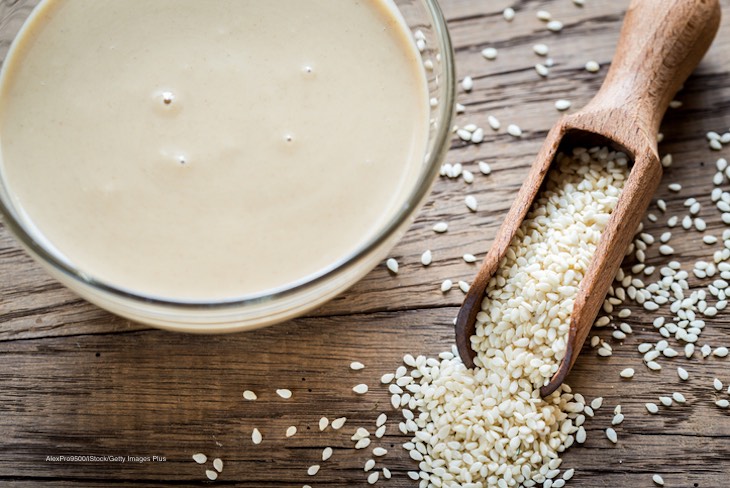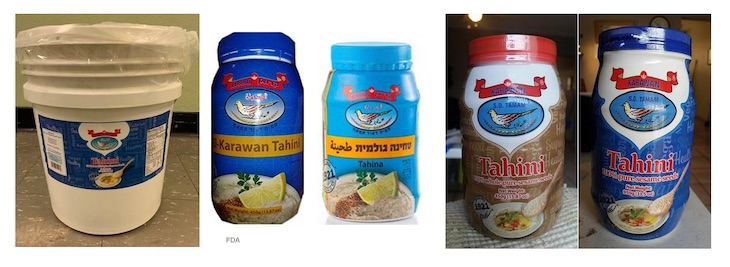A Salmonella Concord outbreak linked to Karawan Tahini and Halva brand tahini has sickened four people in three states and hospitalized one person. The original outbreak notice stated that the tahini was imported from Israel. The recall notice, which was posted on May 16, 2019, says the tahini was imported from Palestine. This outbreak is not related to the 2018-2019 Salmonella Concord outbreak linked to Achdut Tahini.

That earlier outbreak, which ended in February 2019, sickened eight people. The tahini in that outbreak was imported from Israel and was sold under several different brand names, including Achdut, Soom, Pepperwood, and Baron.
In this new outbreak, the case count by state is: New York (2), Massachusetts (1), and Texas (1). The last illness onset date was March 23, 2019. There is no information about the patient age range.
The FDA has been working with officials from the state of New York and New York City on this outbreak. The New York City Department of Health and Mental Hygiene tested samples of Karawan tahini and found that the product contained Salmonella bacteria.
Based on that positive sample, epidemiological data, and traceback, the FDA has requested that the product be recalled. A recall was issued for two sizes of Karawan Tahini on May 16, 2019.

Attorney Fred Pritzker said, “Even when you recover from this infection, there is still a risk you will develop a serious complication in the future.” Call 1-888-377-8900 for help.
Food safety attorney Fred Pritzker, who has litigated suits against corporations on behalf of clients sickened with Salmonella infections and complications, said, “No ready-to-eat product should be contaminated with enough Salmonella or other pathogen that can make people sick.”
The label of the product that tested positive for Salmonella identified Brodt Zenatti Holdings of Jupiter, Florida as the importer of that specific tahini product. But other importers may have imported Karawan Tahini and Halva brand.
The tahini may be labeled as “Karawan Tahini” or “El Karawan Tahini.” Consumers should avoid eating eating this tahini. The tahini was sold in bulk to retailers and restaurants. It may also have been available to consumers at retail locations and through online sales.

This product has a shelf life of two years, so some may still be in consumers’ homes. The product may also have been used to make other food products sold to consumers.
Check to see if you have this product; if you do, discard it in a sealed garbage can. Then clean out you refrigerator with a mild bleach solution to kill any bacteria. If you ate any food made with tahini and have been ill, check with the restaurant or retailer to see if any of their foods were made with this specific tahini.
Tahini is made from sesame seeds and can be served on its own as a dip or condiment. It can also be used as an ingredient in Middle Eastern and Mediterranean style dishes such as hummus, baba ganoush, and falafel.
The symptoms of a Salmonella infection include fever, nausea, stomach and abdominal cramps, vomiting, a rash, and blood in the urine or stool. Certain groups, such as the very young and elderly, are more susceptible to serious complications from this infection, including sepsis.




